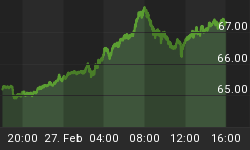Some Thoughts Macro, Value and Austrian
"Just because you do not take an interest in politics doesn't mean politics won't take an interest in you" ~ Pericles
Summer is here and the inevitable Keynesian endgame seems to be arriving for Greece. Shall we feign surprise that massive governments deficits to pay for unsustainable entitlement programs funded by insolvent banks and money printing central banks are not a recipe for a successful economy?
When you are bankrupt more debt doesn't remedy your problem - at best it may serve to maintain your liquidity which is not the same as your solvency. None of the participants in the unfolding Greek tragedy are willing to take losses. Everyone wants to be bailed by the other guy, something akin to trying to lift a bucket while standing in it as Winston Churchill once quipped. How will the Greek story end? Let's assume that some combination of the following must occur:
- Government needs to shrink
- Banks must take losses
- Central banks must stop printing money
- Taxpayers must accept reduced entitlements
Judging by this list my conclusion would be "not well". The banks want the taxpayers to shoulder the losses, the state wants the taxpayers to shoulder the losses, the taxpayers want the banks to shoulder the losses. This is a fantasy that cannot continue indefinitely. Before we get too smug about the mess in Greece let us not forget most G8 sovereign balance sheets don't look much better.
Why? Its simple math. Whether you are Greek, Canadian or Zimbabwean you cannot indefinitely receive $5 of government services for less than $5 of payments, if you are a bank you cannot keep lending to insolvent borrowers without incurring losses, and if you are a central bank you cannot keep printing money without reducing its value. When a country arrives at the point where its debt is two times the size of its economy and its unfunded liabilities are even greater, if the end is not near it must certainly be visible on the horizon.
In the ongoing battle to postpone the day of reckoning, at least until after the next election cycle, the less scrupulous members of the political class are now willing to pull out all the stops and intervene in ways and in markets that would have been unheard of just a few years ago. Sadly, we are now dealing to a large degree with political investment markets not economic ones - the question then becomes how long before economic gravity re-asserts itself?
Economic gravity in the form of escalating nominal prices certainly seems to be re-asserting itself in the energy markets over the last 24 months. So much so that the International Energy Agency (IEA) recently announced that the US and its partners will release 60 million barrels of oil - ostensibly to offset the loss of Libyan output even though Libya only amounts to around 2% of daily supply. The US will release a million barrels a day from the Strategic Petroleum Reserve (SPR) - an emergency action it has only taken 3 times in the SPR's history:
- 1990/91 - Desert Storm sale - 21 million barrels
- 2005 - Hurricane Katrina sale - 11 million barrels
- 2011 - Arab Spring sale - 30 million barrels
Why is this being done? A cynic might be inclined to answer that there are many more compelling reasons over and above Libya:
- Sweet versus Sour: Incremental Saudi production is too sour and heavy to bring down global prices because refineries that lost Libyan sweet crude cannot handle sour crude.
- Spare Production: It appears that despite the verbal posturing to the contrary, Saudi can only pump modest amounts of additional oil and then only for short periods of time. Just the loss of 1.6 million barrels a day revealed that the emperor was not wearing any clothes.
- Demand Growth: With any kind of reasonable economic growth, the demand for oil will continue to increase. China aims to be middle class and even after 2 decades of impressive development is still at the very early stage of that transformation.
- Hidden Stimulus - QE2.5: Every dollar drop in the price of oil acts as a $7 billion annualized tax break for US consumers.
- Nominal Price Pressures: Rapid money supply increases are driving nominal energy prices and monetary authorities are eager to disguise this fact - even if only temporarily. With commodity prices at nominal highs there will be stiff grass roots resistance to even the hint of QE3 emanating from central bankers.
Perversely, by reducing prices even temporarily the IEA will make marginal supply uneconomic which will curtail future development plans - another example of the short-sighted "kicking the can down the road" behavior of our governments.
I believe we are seeing the unraveling of some very powerful long-term trends particularly the long term bull market in sovereign debt. This is certainly an ominous development but is does not mean we should give up all hope to generate returns. Changes of the magnitude that we are witnessing should provide commensurately big opportunities. The key is to be ready and position yourself accordingly. The benign investing world of the last two decades appears to be passing rapidly and the one replacing it is more volatile at all levels.
Kind Regards















